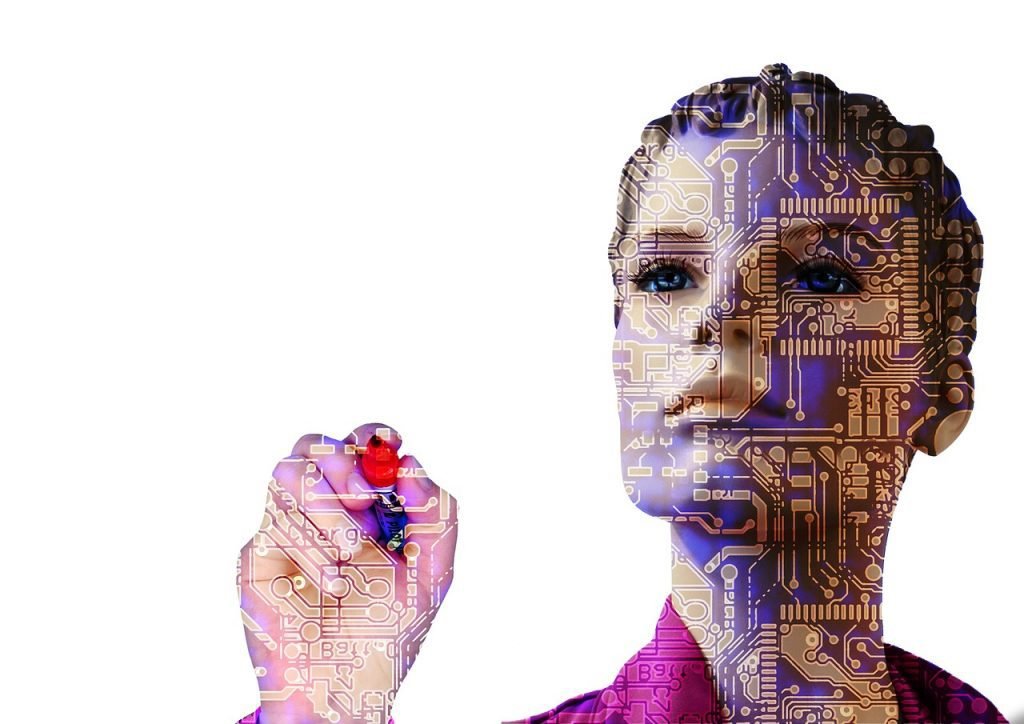Machine learning is an exciting and transformative technology that is reshaping the world we live in. With its ability to analyze vast amounts of data and make accurate predictions, machine learning is driving advancements in various industries and opening up new opportunities for the future. In this article, we will dive deep into the world of machine learning, exploring its current advancements, future trends, and the wide range of applications it offers.
From healthcare to finance, retail to manufacturing, machine learning is revolutionizing the way we live and work. It is powering personalized recommendations, improving customer experiences, and enabling more efficient decision-making processes. As we delve into the future scope of machine learning, we will also uncover the emerging technologies that are pushing the boundaries of this field.
Whether you are interested in a career in machine learning or simply curious about its potential, this article is your guide to understanding the incredible opportunities that lie ahead. Get ready to explore the exciting landscape of machine learning and discover how it is poised to shape our future.
Key Takeaways:
- Machine learning is a transformative technology with vast applications across industries.
- It is revolutionizing customer experiences through personalized recommendations and predictive analytics.
- The future of machine learning holds promising advancements and emerging technologies.
- Career prospects in machine learning are abundant, with a growing demand for skilled professionals.
- The wide range of applications and opportunities in machine learning make it an exciting field to explore.
The Need for Machine Learning in Today’s World
In today’s rapidly evolving world, machine learning has become an indispensable tool across various aspects of our lives. Its importance stems from the ability to analyze vast amounts of data, identify patterns, and make accurate predictions. Machine learning is transforming industries and driving innovation by improving efficiency, productivity, and decision-making processes.
One of the key benefits of machine learning is its ability to solve complex problems that were previously considered unsolvable. By leveraging advanced algorithms, machine learning models can process and interpret complex data sets, uncovering valuable insights and enabling organizations to make data-driven decisions.
Moreover, machine learning plays a crucial role in driving innovation in fields such as healthcare, finance, and technology. In healthcare, machine learning algorithms can analyze medical data to predict diseases, assist with medical diagnoses, and personalize treatments for patients. In the finance industry, machine learning is used to detect fraudulent transactions, assess credit risks, and automate trading strategies. In the technology sector, machine learning powers voice recognition systems, recommendation engines, and virtual assistants, enhancing user experiences.
Machine learning offers numerous benefits in our society and economy. By automating repetitive tasks and optimizing processes, it improves efficiency and productivity. It also enables businesses to provide personalized experiences to customers, driving customer satisfaction and loyalty. Additionally, machine learning helps organizations stay ahead of the competition by continuously learning and adapting to new trends and patterns in data.
Overall, the need for machine learning in today’s world is evident. Its importance lies in its ability to solve complex problems, drive innovation, and transform industries. As we continue to embrace technology and rely on data-driven insights, machine learning will play an increasingly vital role in shaping our future.
Defining Machine Learning and Its Influence
Machine learning is a branch of artificial intelligence that focuses on enabling machines to learn from data and improve their performance over time without explicit programming. It allows computers to analyze, interpret, and make predictions or decisions based on patterns and trends in the data they process.
At its core, machine learning involves the use of algorithms that allow machines to learn from examples and experiences. These algorithms enable machines to identify and recognize patterns in data, make predictions, and adapt their behavior based on feedback.
Machine learning algorithms can be broadly categorized into three types:
- Supervised learning: In supervised learning, the machine is trained using labeled data, where the desired output is known. The machine learns to generalize the relationship between the input and the output based on the provided examples. This type of learning is commonly used for tasks such as classification and regression.
- Unsupervised learning: In unsupervised learning, the machine learns from unlabeled data, where the desired output is not explicitly provided. The machine identifies patterns and structures in the data without any prior knowledge. This type of learning is often used for tasks such as clustering and anomaly detection.
- Reinforcement learning: In reinforcement learning, the machine learns through interaction with its environment. It receives feedback in the form of rewards or penalties based on its actions and learns to maximize its performance by choosing the actions that lead to the highest rewards. This type of learning is commonly used in game playing and robotics.
Machine learning has a profound influence across various domains and industries. Its applications are vast and diverse, spanning from personalized recommendations in e-commerce to fraud detection in financial institutions. Machine learning algorithms power the technology behind language translation, voice recognition, image and speech recognition, and even autonomous vehicles.
The influence of machine learning is evident in several areas:
- Personalized recommendations: Machine learning algorithms analyze user behavior and preferences to provide personalized recommendations, driving customer satisfaction and engagement.
- Fraud detection: Financial institutions use machine learning to detect and prevent fraudulent activities by identifying suspicious patterns and anomalies in transactions.
- Predictive analytics: Machine learning enables businesses to make informed predictions and forecasts based on historical data, improving decision-making processes.
Overall, machine learning has the potential to revolutionize industries, optimize processes, and enhance the quality of products and services. Its influence is continuously growing as more data becomes available, and advancements continue to be made in algorithm development and computational capabilities.
Unpacking the Impact on Automotive Innovations
The automotive industry is undergoing a revolutionary transformation with the integration of machine learning. Advancements in autonomous vehicles and enhanced safety features are just a few examples of the groundbreaking innovations propelled by machine learning technologies.
New Horizons in Autonomous Vehicles
Autonomous vehicles, also known as self-driving cars, have emerged as one of the most significant applications of machine learning in the automotive industry. Through the use of complex algorithms and sensors, self-driving cars are capable of analyzing vast amounts of data in real-time, enabling them to navigate through traffic, make informed decisions, and provide a safer driving experience.
Machine learning algorithms enable autonomous vehicles to learn and adapt to different road conditions, traffic patterns, and unforeseen circumstances. This technology empowers self-driving cars to continuously improve their performance and enhance the overall safety of transportation.
Machine Learning’s Role in Enhanced Safety Features
Machine learning plays a critical role in enhancing the safety features of automobiles. Through machine learning algorithms, vehicles can analyze data from various sensors, such as cameras and radars, to detect potential hazards and take proactive measures to avoid accidents.
Collision avoidance systems, for example, leverage machine learning to quickly identify and assess potential collision risks. These systems can automatically apply brakes or steer the vehicle away from the danger, significantly reducing the likelihood of accidents.
Additionally, machine learning enables the development of advanced safety features like adaptive cruise control. This technology uses machine learning algorithms to continuously monitor the speed and distance between vehicles, allowing vehicles to adjust their speed and maintain a safe following distance, ensuring a smoother and safer driving experience.
By harnessing the power of machine learning, the automotive industry is revolutionizing the way we travel, enhancing safety, and paving the way for a future where autonomous vehicles are commonplace on our roads.
Machine Learning Applications in Robotics
Robotics is a field that is experiencing significant advancements and breakthroughs, thanks to the integration of machine learning. Innovations in robotics are being driven by machine learning algorithms, enabling the development of robots with human-like dexterity and cognitive capabilities. From autonomous drones to collaborative robots, machine learning is revolutionizing the capabilities of robotic technologies.
Towards Human-like Dexterity
One of the remarkable applications of machine learning in robotics is the development of robots with human-like dexterity. These robots are equipped with advanced sensors and actuators that allow them to mimic the intricate movements and manipulations performed by humans. Machine learning algorithms enable these robots to learn from data and improve their motor skills, enabling them to perform delicate tasks with precision and accuracy.

Cognitive Advances in Robot Interactions
Another area where machine learning is driving advancements in robotics is cognitive robot interactions. Cognitive robots are designed to perceive and understand human behavior, emotions, and intentions, allowing them to interact and collaborate with humans in a more natural and intuitive manner. Machine learning algorithms enable these robots to analyze and interpret human gestures, facial expressions, and speech, enabling more effective communication and collaboration.
Quantum Computing: A Leap for Machine Learning
Quantum computing has the potential to revolutionize machine learning algorithms and computational power. This game-changing technology opens up new possibilities for advancing the field of machine learning and unlocking new frontiers in computational capabilities.
At the core of quantum computing’s impact on machine learning is the concept of quantum algorithms. These algorithms harness the unique properties of quantum systems to perform calculations more efficiently and effectively than classical algorithms.
Quantum machine learning is an emerging field that explores how quantum computing can enhance and accelerate traditional machine learning techniques. By leveraging quantum properties such as superposition and entanglement, quantum machine learning algorithms can process and analyze large datasets with unparalleled speed and precision.
One of the key advantages of quantum computing for machine learning is its ability to handle complex computations and calculations that are infeasible for classical computers. This computational power enables the development of more sophisticated machine learning models and algorithms, leading to more accurate predictions and insights.
Quantum computing has the potential to revolutionize machine learning by enabling faster and more efficient algorithms, unlocking new possibilities for solving complex problems.
Moreover, quantum machine learning has the potential to transform various industries and domains. For example, in healthcare, quantum algorithms can analyze vast amounts of patient data to develop personalized treatment plans and predict disease outcomes. In finance, quantum machine learning can optimize investment portfolios and enhance risk assessment models.
To illustrate the potential impact of quantum computing on machine learning, consider the example of optimization problems. These types of problems are pervasive in machine learning, and finding optimal solutions can be time-consuming and computationally intensive. However, with quantum computing, optimization problems can be solved exponentially faster, enabling more efficient and effective machine learning workflows.
As quantum computing continues to evolve and mature, it holds the promise of transforming the field of machine learning and unlocking new frontiers in computational power. The synergy between quantum computing and machine learning has the potential to revolutionize how we approach complex problems and accelerate advancements in various industries.
Advancements in Computer Vision Technology
Computer vision technology has undergone significant advancements with the integration of machine learning. These advancements have revolutionized various industries by unlocking the potential of computer vision applications. One of the key areas where machine learning has greatly impacted computer vision is image recognition.
Image recognition, powered by machine learning algorithms, enables computers to analyze and understand visual data, such as images and videos. This technology has found valuable applications in self-driving cars, surveillance systems, medical imaging, and more. By accurately identifying and classifying objects in real-time, machine learning in computer vision enhances safety, security, and efficiency in various domains.
To illustrate the capabilities of machine learning in computer vision, consider the use of facial recognition technology. With the ability to accurately identify individuals from images or video footage, facial recognition is being employed in security systems, access control, and even personalized marketing campaigns. Machine learning algorithms enable greater accuracy in facial recognition by continuously improving their models through training and feedback loops.
Computer vision technology also includes object detection, which can be used for a variety of purposes, such as inventory management, autonomous navigation, and even augmented reality experiences. By leveraging machine learning algorithms, computers can detect and track objects in real-time, enabling a wide range of innovative applications.
As machine learning continues to advance, the capabilities of computer vision technology are expected to expand further. With ongoing research and development, we can anticipate more accurate, efficient, and versatile computer vision applications in the future.
| Applications of Machine Learning in Computer Vision |
|---|
| Image recognition |
| Facial recognition |
| Object detection |
| Video analytics |
| Augmented reality |
| Medical imaging |
Future Trends in Machine Learning
As machine learning continues to evolve, there are several future trends that are shaping the field and driving innovation. Emerging technologies and research developments are opening up new possibilities and expanding the applications of machine learning in various domains. In this section, we will explore some of these exciting future trends in machine learning and their potential impact.
One of the key areas of future development is deep learning. Deep learning techniques, inspired by the human brain’s neural networks, have shown promising results in solving complex problems. The ability of deep learning models to automatically learn and extract meaningful patterns from large datasets is revolutionizing fields such as natural language processing, computer vision, and speech recognition.
Another significant trend is the advancement of natural language processing (NLP). With the increasing volume of textual data, NLP techniques are becoming crucial in extracting insights and understanding human language. The combination of machine learning and NLP is enabling applications such as sentiment analysis, language translation, and chatbots with more human-like interactions.
Reinforcement learning is also an area of active research and development. This branch of machine learning focuses on training agents to make decisions based on feedback from their environment. Reinforcement learning has applications in autonomous systems, robotics, and game playing. It has the potential to revolutionize fields like self-driving cars and intelligent automation.
Furthermore, emerging technologies such as generative adversarial networks (GANs) are driving innovation in machine learning. GANs enable the generation of realistic synthetic data, which has applications in image and video synthesis, data augmentation, and simulation. GANs have shown great promise in the creative industry and are opening up new possibilities in areas like design and art.
Table: Future Trends in Machine Learning
| Trend | Description |
|---|---|
| Deep Learning | Advancements in neural networks for complex problem solving. |
| Natural Language Processing (NLP) | Extraction of insights from textual data and human-like interactions. |
| Reinforcement Learning | Training agents to make decisions based on environmental feedback. |
| Generative Adversarial Networks (GANs) | Creating realistic synthetic data for various applications. |
These are just a few of the future trends in machine learning that hold great potential. As technology continues to advance and research progresses, we can expect more exciting innovations and applications of machine learning in various domains.
Career Growth and Opportunities in Machine Learning
Machine learning offers promising career growth and opportunities for individuals interested in this field. As machine learning continues to revolutionize various industries, the demand for skilled professionals is on the rise. In this section, we will explore the prospects for machine learning engineers, the required skills for success, and the global salary trends in the machine learning industry.
Machine Learning Engineer Prospects
Machine learning engineers are at the forefront of developing and implementing machine learning models and algorithms. They play a critical role in designing and training models that can make accurate predictions and drive data-driven decision-making. With the increasing adoption of machine learning across industries, the job prospects for machine learning engineers are promising.
Companies in sectors such as technology, healthcare, finance, retail, and manufacturing are actively seeking skilled machine learning engineers to implement innovative solutions and drive business growth. Additionally, the rise of startups and research organizations focusing on machine learning further expands the career opportunities in this field.
Salary Trends Across the Globe
The salaries in the machine learning industry vary based on factors such as location, job experience, and skill set. However, machine learning engineers generally enjoy competitive salaries and attractive compensation packages.
According to industry reports and data, machine learning engineers in leading technology hubs such as Silicon Valley, New York City, and London, command higher salaries compared to other regions. However, it’s worth noting that the demand for machine learning engineers is not limited to these locations, and opportunities exist worldwide.

Machine learning professionals can also benefit from additional perks such as stock options, bonuses, and training opportunities. As machine learning continues to shape various industries and become more integral to business operations, the earning potential for skilled professionals in this field is expected to grow.
Having explored the career prospects and salary trends in the machine learning industry, it’s clear that the field offers exciting opportunities for those with the right skill set and passion for innovation. In the next section, we will delve into the essential skills necessary for a successful career in machine learning.
Skills Essential for a Career in Machine Learning
Technical Know-how and Programming Languages
To excel in a career in machine learning, it is crucial to possess strong technical skills and proficiency in programming languages. A solid foundation in these areas empowers machine learning professionals to effectively develop, implement, and optimize complex algorithms and models.
Proficiency in programming languages such as Python and R is highly sought-after in the machine learning industry. Python, with its extensive libraries and frameworks like NumPy and TensorFlow, offers a versatile and powerful environment for data analysis, machine learning, and deep learning. Similarly, R, with its statistical capabilities and rich packages such as caret and ggplot2, is widely used for statistical modeling and data visualization in machine learning tasks.
Mathematical Foundations and Algorithm Design
A strong understanding of mathematical foundations is essential for machine learning professionals. Concepts such as linear algebra, calculus, statistics, and probability theory serve as the building blocks for machine learning algorithms and models. Proficiency in these areas enables professionals to grasp the intricacies of machine learning concepts and ensure accurate results.
Algorithm design is another critical skill in the machine learning domain. Machine learning professionals should be adept at developing algorithms that effectively preprocess data, extract relevant features, and optimize models’ performance. An in-depth knowledge of various algorithms, including linear regression, decision trees, support vector machines, neural networks, and ensemble methods, equips professionals with the ability to choose the appropriate algorithms for different tasks and datasets.
Exploring Future Scope of Machine Learning in Real-world Sectors
Machine learning is a transformative technology with immense potential across various real-world sectors. In this section, we will delve into the future scope of machine learning and its applications in sectors such as healthcare, finance, retail, manufacturing, and more.
In healthcare, machine learning is revolutionizing patient care and diagnostics. By analyzing patient data, machine learning algorithms can assist in disease diagnosis, personalized treatment plans, and drug discovery. This technology has the potential to greatly improve healthcare outcomes and reduce costs.
Machine learning is also making significant strides in the finance sector. It is being used to detect fraudulent transactions, predict stock market trends, and automate investment strategies. By analyzing large volumes of financial data, machine learning algorithms can assist financial institutions in making accurate and timely decisions.
Retail is another sector where machine learning is transforming the customer experience. By leveraging customer data, machine learning algorithms can provide personalized product recommendations, optimize pricing strategies, and improve inventory management. This leads to improved customer satisfaction and increased sales.
In the manufacturing industry, machine learning is driving improvements in process efficiency and quality control. By analyzing sensor data in real-time, machine learning algorithms can detect anomalies, predict equipment failures, and optimize production schedules. This results in reduced downtime, increased productivity, and cost savings.
Machine learning’s future scope is vast, with exciting applications across various sectors. By harnessing the power of data and algorithms, machine learning has the potential to drive innovation, improve efficiency, and enhance customer experiences in real-world industries.
Machine Learning’s Role in Enhancing Customer Experiences
Machine learning is revolutionizing customer experiences by enabling businesses to deliver personalized recommendations and automate customer service. Through predictive analytics, machine learning algorithms analyze vast amounts of data to understand customer preferences and behavior, allowing companies to offer tailored suggestions and offerings.
Personalization Through Predictive Analytics
Predictive analytics, powered by machine learning, allows businesses to create personalized experiences for their customers. By analyzing past customer interactions, purchase history, and browsing behavior, machine learning algorithms can identify patterns and make accurate predictions about individual preferences. This enables companies to recommend relevant products, content, and services, making the customer experience more engaging and satisfying.
With personalized recommendations, businesses can not only increase customer satisfaction but also drive sales and customer loyalty. By delivering tailored suggestions that align with customers’ interests and needs, companies can create a sense of personalized attention and strengthen their relationship with customers.
Revolutionizing Customer Service with AI-chatbots
AI-chatbots powered by machine learning are fundamentally transforming customer service. These virtual assistants are designed to simulate human-like conversations, providing quick and efficient support to customers. With machine learning, AI-chatbots continuously learn from customer interactions, improving their responses and problem-solving capabilities over time.
AI-chatbots can handle a wide range of customer inquiries, such as order status, product information, and technical support. By automating these tasks, businesses can reduce customer wait times, provide round-the-clock support, and enhance overall customer satisfaction. Additionally, AI-chatbots free up human agents to focus on more complex issues, increasing productivity and efficiency in customer service operations.
Machine learning has transformed customer experiences by enabling personalized recommendations through predictive analytics and revolutionizing customer service with AI-chatbots. As businesses continue to harness the power of machine learning, the potential for enhancing and optimizing customer experiences will only continue to grow.
Conclusion
Machine learning has a bright future ahead, with numerous advancements that are transforming industries and impacting our lives in profound ways. The future scope of machine learning is vast, as it continues to revolutionize various sectors, including automotive, robotics, finance, healthcare, and more.
The impact of machine learning is evident in the development of autonomous vehicles and enhanced safety features in automobiles. It is also driving breakthroughs in robotics, enabling human-like dexterity and cognitive interactions. Additionally, machine learning is accelerating the capabilities of computer vision, facilitating advancements in image recognition and object detection.
Looking ahead, the future trends in machine learning showcase emerging technologies like deep learning, natural language processing, and reinforcement learning. These innovations hold immense potential to reshape industries and unlock new possibilities. As a result, the demand for skilled professionals in machine learning is on the rise, offering exciting career opportunities and growth prospects.
In conclusion, machine learning is a transformative technology with a wide range of applications and a promising future. Its advancements are propelling industries forward and opening up new horizons in innovation. Whether it’s the optimization of business processes, personalized customer experiences, or groundbreaking scientific discoveries, machine learning continues to shape the world we live in.
FAQ
What is machine learning?
Machine learning is a branch of artificial intelligence that enables computers or machines to learn and improve from experience without being explicitly programmed. It involves the development of algorithms that allow machines to analyze data, identify patterns, and make predictions or decisions.
How does machine learning work?
Machine learning works by training algorithms on large datasets, allowing them to learn patterns and make predictions or decisions. The process involves feeding input data into the algorithm, which then adjusts its internal parameters based on the feedback it receives. This iterative process continues until the algorithm achieves the desired level of accuracy or performance.
What are the applications of machine learning?
Machine learning has a wide range of applications across various industries. It is used in healthcare for disease diagnosis and personalized treatment recommendations. In finance, it is used for fraud detection and risk assessment. In technology, it is used for speech recognition and natural language processing. Other applications include customer segmentation, recommendation systems, and predictive maintenance, to name a few.
What are the future trends in machine learning?
The future of machine learning is expected to bring advancements in deep learning, natural language processing, and reinforcement learning. There will also be a focus on ethical AI and responsible use of machine learning technologies. Additionally, emerging technologies like quantum computing and edge computing will shape the future of machine learning.
What are the career prospects in machine learning?
Machine learning offers promising career growth and opportunities. The demand for machine learning engineers, data scientists, and AI specialists is on the rise. Professionals with expertise in machine learning algorithms, programming languages like Python and R, and strong mathematical and analytical skills have excellent prospects in this field.
What are the essential skills for a career in machine learning?
To excel in a career in machine learning, it is crucial to have a strong understanding of mathematics and statistics. Programming skills in languages like Python and R are essential. Additionally, knowledge of machine learning algorithms, data preprocessing, and model evaluation techniques is necessary for success in this field.
How is machine learning transforming different industries?
Machine learning is revolutionizing various industries. In healthcare, it is enabling personalized treatment plans and drug discovery. In finance, it is improving fraud detection and risk management. In retail, it is enhancing personalized recommendations and demand forecasting. The potential applications of machine learning in sectors like manufacturing, transportation, and energy are also driving efficiency and innovation.
How can machine learning enhance customer experiences?
Machine learning enables businesses to deliver personalized customer experiences. Through predictive analytics, machine learning algorithms can analyze customer data and provide tailored recommendations. AI-powered chatbots are improving customer service by providing automated and efficient support. Overall, machine learning helps businesses understand customer preferences and deliver more targeted and satisfying experiences.
What is the future scope of machine learning?
Machine learning has tremendous future scope. As technology advances, machine learning will continue to play a central role in driving innovation and solving complex problems. Its potential applications in fields like healthcare, finance, cybersecurity, and smart city development are vast. The demand for professionals skilled in machine learning will only increase as more industries recognize its transformative power.







